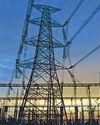
It is common to think of US-China tensions as the inevitable result of stark differences between the two countries. The US has a fully capitalist market economy, whereas the Chinese government keeps a strong hand on the economic tiller. For all its faults, the US is a democracy, whereas China is a single-party regime that brooks no political challenge. Though the US remains the world's most powerful country, China's growing economic and geopolitical might threatens American hegemony. But while all this is true, many US-China conflicts stem from their increasing commonalities. America's relative decline has made it feel more insecure, prompting economic and national-security policies that are reminiscent of China's own decades-long strategy of prioritizing national economic strength and renewal over the requirements of an open, 'liberal' global economy. Paradoxically, as the US emulates strategies that served China quite well, the strains in the bilateral relationship multiply.
Even though China turned towards markets after 1978 and liberalized its economy, the Communist Party of China's policies reflected more than just a pursuit of economic growth. They were part of a national project of rejuvenation designed to re-establish China as a major power. Consequently, China played the globalization game by its own rules, sheltering and promoting its own industries while leveraging external markets. The state was never too shy to step in and subsidize what it saw as strategic industries (either from a commercial or national-security standpoint).
Denne historien er fra February 20, 2024-utgaven av Mint Mumbai.
Start din 7-dagers gratis prøveperiode på Magzter GOLD for å få tilgang til tusenvis av utvalgte premiumhistorier og 9000+ magasiner og aviser.
Allerede abonnent ? Logg på
Denne historien er fra February 20, 2024-utgaven av Mint Mumbai.
Start din 7-dagers gratis prøveperiode på Magzter GOLD for å få tilgang til tusenvis av utvalgte premiumhistorier og 9000+ magasiner og aviser.
Allerede abonnent? Logg på

World Bank calls for reforming skills training in India
India must make a coordinated effort to reform and rebrand vocational skill training, besides aligning education with the job market, to leverage its demographic advantage to meet the $5-trillion target for its economy, the World Bank said.
FCPA cases take long to conclude after indictment
For investors keen to know the fate of billionaire Gautam Adani's indictment by US authorities, the watchword is patience.

Short-covering, relief rally add ₹7.27 trillion wealth
Markets up 2.39% to hit the highest in six months, a day after Adani's indictment

Wetter monsoon slows pace of adding new transmission lines
India's addition of new power transmission lines fell by half over a year earlier in the April-October period as a wetter-than-usual monsoon slowed work.

COP29's $1.3 tn fund plan disappoints Global South
The 29th edition of the UN climate change conference in Azerbaijan emerged from a deadlock with an annual climate finance goal of $1.3 trillion for developing countries, much to the disappointment of the Global South.

Jaguar rebrand is pink, diverse and doesn't feature any cars
Luxury automaker Jaguar is betting that a colorful and youthful rebrand will help it successfully launch fully into the electric-cars market.
Services up as manufacturing slows in Nov
The HSBC Flash India Services PMI was at 59.2 in Nov from 58.5 in Oct; manufacturing PMI fell slightly from 60.4 to 60.2

MSMED may protect medium firms too
The Centre may consider including medium enterprises for the protection granted under MSME Development (MSMED) Act, 2006, to resolve payment disputes.

Europe boosts Indian textile exports in FY25
Demand for Indian handloom, apparel partly fuelled by Bangladesh crisis
RBI nudges banks to cut speculative bet in rupee
The Indian central bank, in a rare move, instructed some banks to cut their long positions on the dollar-rupee pair on Friday, seeking to curb speculative positions with the currency at a record low, four bankers familiar with the development told Reuters.